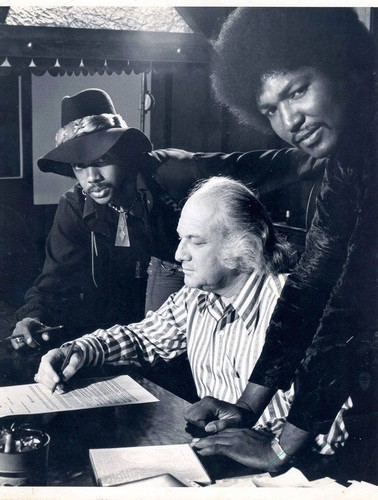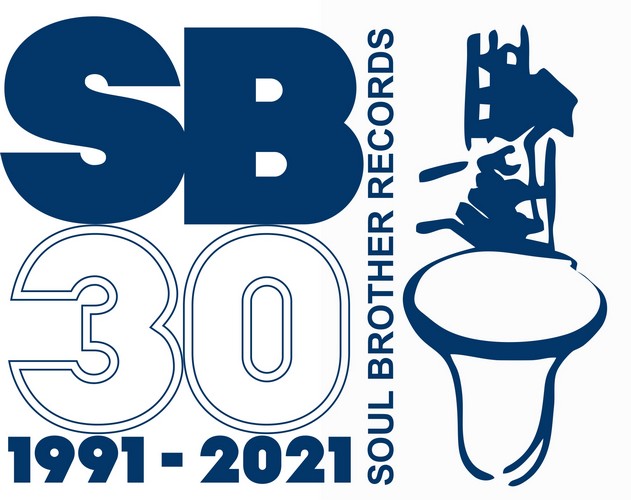 HENRY STONE – TK LABEL CO OWNER AND BOSS: RIP
HENRY STONE – TK LABEL CO OWNER AND BOSS: RIP
Few executives epitomized the music industry’s golden era more than TK’s Henry Stone. Henry Stone (nee Epstein) was a larger than life character, whose career spanned over 60 years. His CV is pretty impressive. For example, he helped discover Ray Charles and he was influential in kick starting the career of James Brown. Later in partnership with Steve Alaimo he set up Alston Records and then TK Records in the seventies, the latter became known as the home of the Miami sound.
Stone was born in the Bronx in 1921. He spent a brief spell in Los Angeles after discharge from the US army, and then moved to Miami in 1948. He set up his own distribution company and soon afterwards his own studio. He was the first to record Ray Charles (Robinson) in 1951 with ‘St Pete Florida Blues’. Stone was instrumental in signing James Brown to King Records and then recording Brown’s first hit ‘Please Please Please’.
Stone’s business acumen was apparent and his labels such as Dade and Chart were relatively successful. In 1960, Nat Kendrick And The Swans, James Brown backing band released ‘Do The Mashed Potatoes’ on Dade. During the sixties, he concentrated on the distribution side of the music business and his Tone distribution company was particularly important in helping establish labels like Atlantic, Motown and Stax worldwide.
The Alston label he set up with Steve Alamo achieved success with the young songstress Betty Wright’s ‘Clean Up Woman’ in 1971. Around this time he was informed that Atlantic had merged with Warner Brothers and Elektra, and would handle its own distribution, thus the backbone of Tone Distribution disappeared overnight. He decided to focus on releasing records instead.
Stone and Alaimo decided to launch another label TK, named after studio owner Terry Kane. TK became the mainstay of the Miami Disco boom. The label hit the big time with K C And The Sunshine Band and George McCrae. Harry Case (KC), a warehouseman and receptionist for Henry Stone, linked up with Richard Finch and started song writing and performing together.
K C And the Sunshine Band seemed to epitomize the sunshine state with hits like ‘Get Down Tonight’, ‘That’s The Way I Like It’ and ‘Shake Your Booty’. The music was light – frothy, may be cheesy at times – but after the sores of Vietnam and against the backdrop of racial violence, the multi racial and ‘happy’ sound offered the world a less stressful soundtrack. In addition to the band’s success, Casey and Finch wrote many hits like George McCrae’s ‘Rock Your Baby’ – an international best seller and sometimes credited as being the first ‘Disco’ record.
Ever the business man, Henry Stone believed that radio stations – crucial in the process of selling volume of records – would not play a large number of releases from the same record label. So he launched label after label over 100 in all. So he enjoyed success with Anita Ward’s ‘Ring My Bell’ on Juana, Bobby Caldwell What You Won’t Do For Love’ on Clouds, Little Beaver ‘Party Down’ for Cat and Timmy Thomas’ ‘Why Can’t We Live Together’ released on Glades.
The latter underscores Stone’s commitment to equality. Whilst in the army (1943-47) he was a trumpeter in a mixed race band – extremely unusual at that time. K C and the Sunshine Band was possibly the most successful multi racial band of its era. Thomas’ plea for tolerance and equality remains a powerful message that still resonances today.
The commercial success was one thing. But Stone’s labels produced some great Soul music too. Betty Wright released some beautiful songs as well as the hits. Latimore’s ‘Let’s Straighten It Out’ is one of the most powerful 70’s Soul songs (would be in my personal top 5 Soul tunes) and Caldwell’s ‘What You Won’t Do For Love’ has to be one of the best blue eyed Soul tunes of all-time.
TK was the largest independent record label in the world at one time. Responsible for over 100 million record sales, Stone helped establish Disco as a global musical force. TK went bankrupt in the early eighties after Disco passed its sell by date yet Stone continued in the industry for a further thirty years or so. He was still a considerable figure and a huge personality up until his passing. For better or worse, the music industry will not see the light of the Svengali like Henry Stone again.

